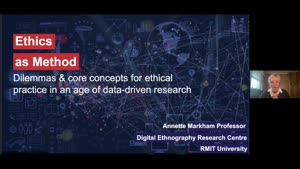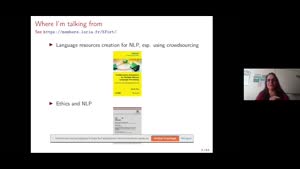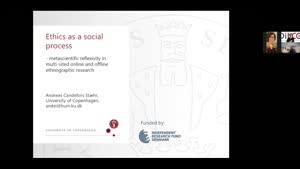Performing conversation: Interactional strategies in TikTok duets: DiLCo Lecture Series 2024 (25 January) - Susan Herring - University of Hamburg
- Lecture2Go
- Catalog
- F.5 - Geisteswissenschaften
- Sprache, Literatur, Medien (SLM I + II)
- Digital language variation in context (DiLCo)
Catalog
Performing conversation: Interactional strategies in TikTok duets: DiLCo Lecture Series 2024 (25 January)
Susan Herring is Professor of Information Science and Linguistics at Indiana University Bloomington and Director of the Center for Computer-Mediated Communication, which she founded. One of the first scholars to conduct linguistic analysis of textual computer-mediated communication, in recent years she has focused on multimodal CMC. She is broadly interested in understanding and describing the nature of technologically mediated discourse, its effects on self-expression, interpersonal interaction, and its social impacts. She has published nearly 200 works, including 11 edited collections, mostly on CMC. A past editor of the Journal of Computer-Mediated Communication, she currently edits the journal Language@Internet.
Humans feel impelled to converse with other humans over technological systems, even when the technology in question does not support conversation well. How do people overcome physical, technical, and logistical challenges and route around obstacles posed by interfaces and systems that are unwelcoming/unfriendly to conversation? What (new) kinds of conversation emerge through this process? I explore these questions through TikTok’s duet feature, a platform affordance that allows users to respond to a previously recorded video, generating a new video in which the original video and the response video are displayed side by side. Dueters do not engage in real time or reciprocally with the video they duet; rather they record themselves over a pre-existing video. This makes conversational interaction seemingly a logical impossibility. Yet some TikTok duets are virtually indistinguishable from synchronous back-and-forth conversational exchanges. To examine how this illusion is achieved and what dueters gain from producing it, I analyze two samples totalling 700 conversational TikTok duets using systematic conversation analysis (White, 2019), focusing on the mechanics of turn-taking. Findings reveal that users obey the conversational imperative by creatively exploiting TikTok’s duet feature to perform conversational interaction. At the same time, dueters must balance conflicting pressures to be original, on one hand, and on the other hand, to gain visibility by catering to TikTok’s distribution algorithm (Herman, 2023).
DiLCo Lecture Series 2024 aims to showcase cutting edge international research on digitally language and communication by both senior and younger researchers from across the world. We wish to present research that explores digital language and communication by drawing on key concepts and topics in socio-cultural linguistics, such as community, context, identity, mediated interaction, multimodality, and linguistic change. We particularly welcome presentations of innovative methods that cut across traditional disciplinary boundaries.
---
DiLCo (‘Digital language variation in context’) is a 3-year international research network initiated in 2021 at the University of Hamburg. The network brings together researchers from Europe and USA with expertise in computational, interactional, and ethnographic approaches to digital language and linguistics. It aims to provide a platform for the development of interdisciplinary ideas in digital language and communication research, and for early-career capacity building.

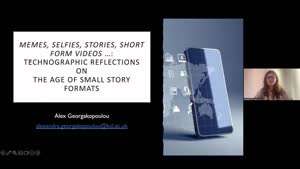
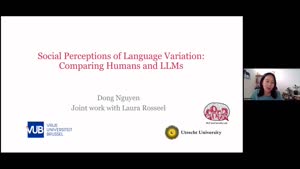
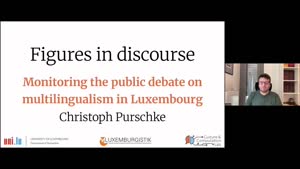
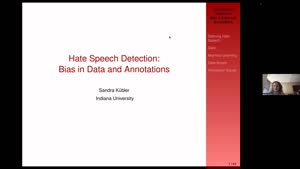
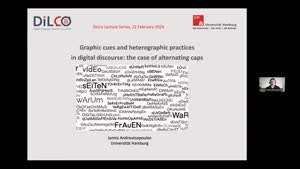
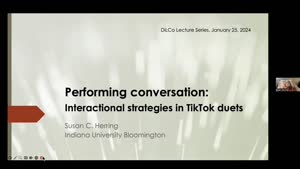
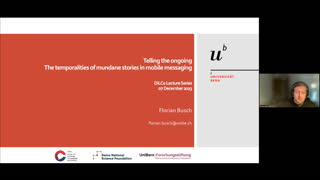
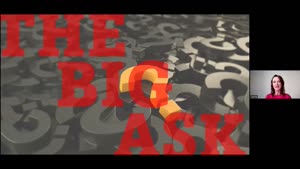
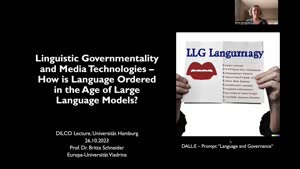
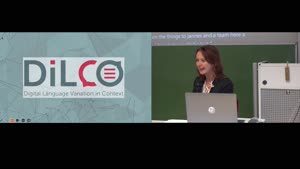
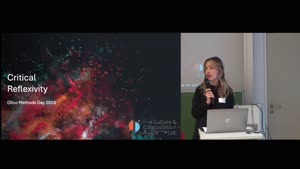
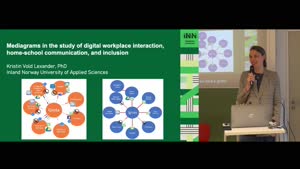
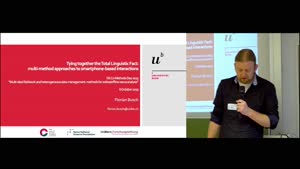
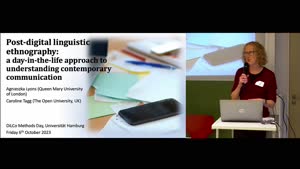
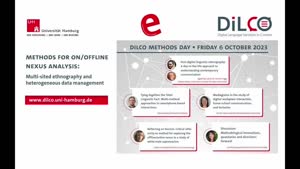
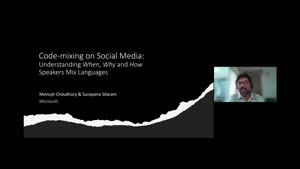
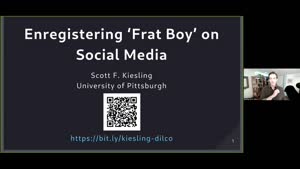
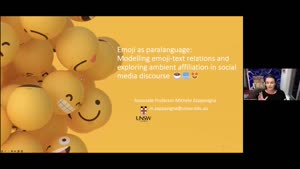
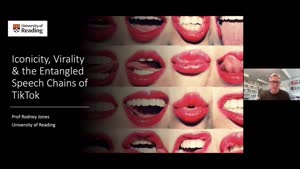
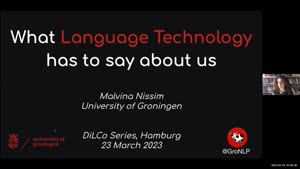
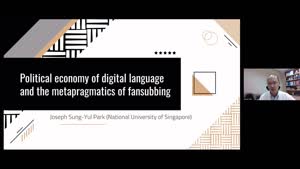
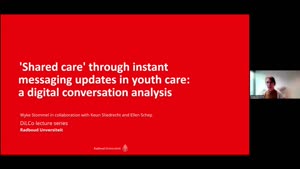
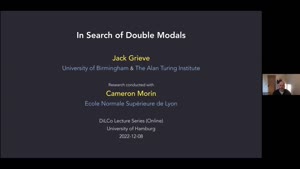

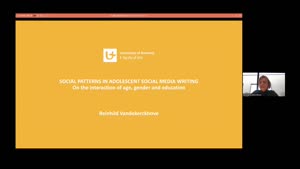
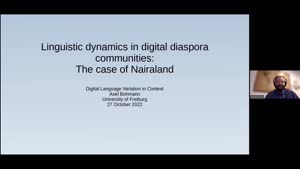
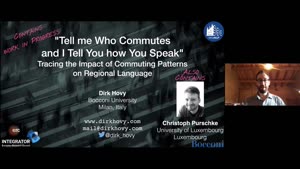
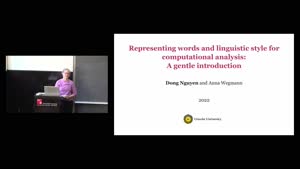
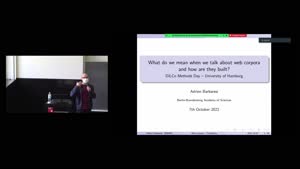
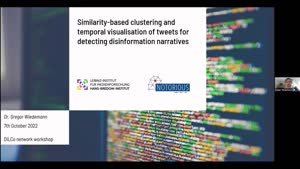
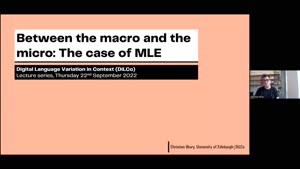
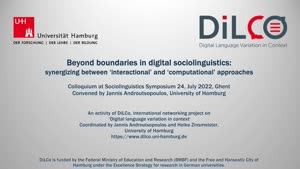
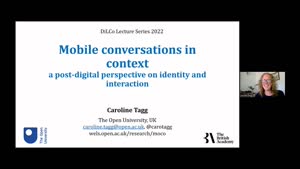
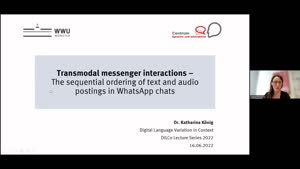
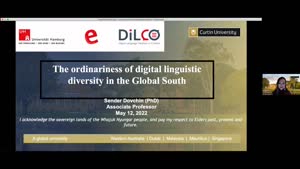
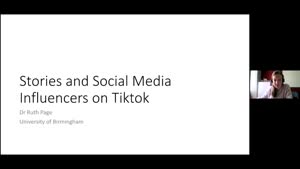
![Thumbnail - Graphic Prosody and political discourse on Greek Reddit [Presentation in Greek]](https://lecture2go.uni-hamburg.de/images/00.000_video-61074_2022-03-30_18-30_m.jpg?lastmodified=1663761108652)
